af_the-star-ingredient
In a compact little restaurant nestled in the heart of Paris’ 2nd arrondissement, Lyonnais chef, Laurent Veyet, is adding the finishing touches to one of his most popular dishes.
A few dollops of apple-flavoured hummus sit on a shortbread base surrounded by honey-roasted carrots and tomatoes baked in thyme. Garnished with edible flowers and a few sprigs of mesclun, the plate begins to resemble a tiny garden exploding with colour.
To this, Chef Laurent adds the pièce de résistance: a few dehydrated mealworms and some whole crickets for crunch and flavour. They'll also marry well with the ground crickets and cheese that form the sablé base.
You’d be right then, to guess that this is no ordinary restaurant. In fact, nothing on Chef Laurent’s menu is made without the ingredient that has animated much of his culinary imagination: insects.
“There's lots to be done to be more eco-responsible. So that's what interests me and it's more or less my specialty now. There are insects, but behind the insects, it's more a way of cooking more intelligently, more respectfully,” the classically trained chef explained.
For Laurent, cooking more respectfully, more intelligently refers to the challenge of feeding a projected global population of 9 billion people by 2050 without laying waste to the environment.
According to the FAO, it is estimated that we will need to increase food production by 70% to meet the growing demand in the coming years. Given that livestock production is already responsible for roughly 14.5 per cent of all human generated greenhouse gases per annum, meeting that demand will require a delicate balancing act in managing the food system of the future.
And it’s why food experts, particularly in the West, are now looking into alternative forms of protein like insects with increasing interest.
“First of all, there is a necessity for us to change our diet simply because 70% or 80% of all agricultural areas are already used for livestock. So if the demand for meat increases, it's impossible to satisfy this with livestock. So we need to change,” Arnold Van Huis, a professor at the University of Wageningen in the Netherlands who co-authored a book on edible insects, said.
But why insects? Well, aside from their comprehensive nutritional profile - they are rich in protein, essential amino acids, and healthy fatty acids - edible insects could be a viable way to rise to the environmental challenges of food production.
Consider this: producing insects requires far less water and land, emits fewer greenhouse gases and boasts an impressive feed-conversion ratio which is a key factor for sustainable agriculture.
For all these reasons and more, to Laurent, insects are the food of the future despite some initial misgivings the Lyonnais chef had when he first tasted the delicacy.
“I remember very clearly the first time I tasted insects because I had a really hard time. It really disgusted me, actually. I had this block,” he recalled.
In this final episode of the Star Ingredient, we will hear the story of how and why Chef Laurent overcame this block to become one of Europe’s foremost advocates of edible insects.
We’ll also hear from experts and producers who are determined to bring insects to the table and to the market in this part of the world.
“Cooking with insects. For me, it's more a way of getting the message across to people, to be careful about what we eat, because what we eat has an impact on our environment and our health,” said Laurent.
“You have to be daring. You have to be curious, you have to be open-minded”.
Chef Laurent Veyet’s ‘complete garden’ recipe:
Ingredients:
For the sablé base
- Ground cricket powder
- Finely grated cheese of your choosing
- For the topping
- Carrots
- Tomatoes
- Honey
- Thyme
- Hummus
- Dried whole mealworms
- Dried whole crickets
- Mesclun
Method:
- Mix the ground crickets and cheese and compact it together. Flatten it and cut into a rectangular shape to make a kind of shortbread. Cook the shortbread in the oven for about 10 minutes.
- Chop and place the carrots onto a baking tray. Season and drizzle with some honey. Sprinkle some thyme over the tomatoes and place on the tray. Roast in the oven until cooked through.
- Add a couple dollops of hummus to the shortbread, along with the carrots and thyme.
- Garnish the dish with dried whole mealworms and dried whole crickets.
- Garnish with a few sprigs of mesclun.
- Serve.
The podcast The Star Ingredient was funded by the European Journalism Centre, through the Solutions Journalism Accelerator. This fund is supported by the Bill & Melinda Gates Foundation.


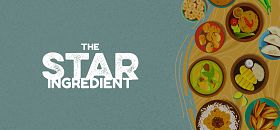
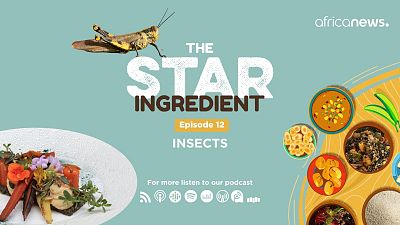








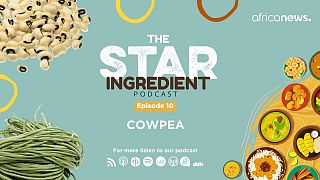
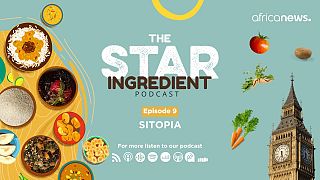
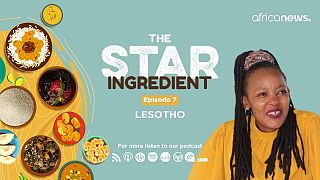



11:18
Africa Day: AU renews call for reparative justice {Business Africa}
02:20
Morocco seeks to preserve traditional cooking and recipes through UNESCO project
Go to video
World Bee Day: bees under threat, but solutions exist, report finds
Go to video
Kenya expert warns of ecological disaster due to insect trafficking
Go to video
Kenya sentences four men for trying to smuggle ants out of the country
02:01
Weevils tackle invasive Salvinia in South Africa